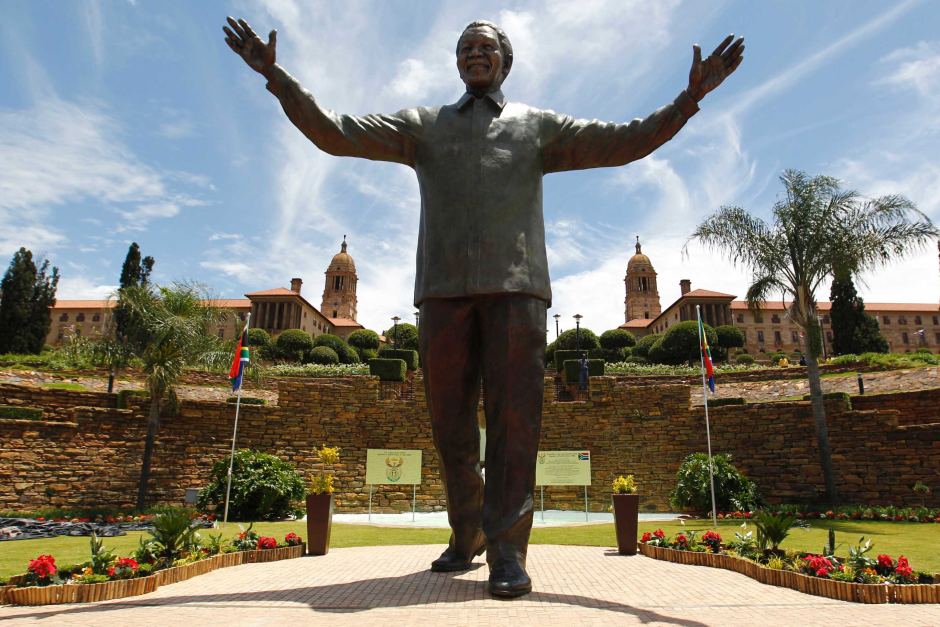
Once upon a time, a common man made history. Nelson Mandela, alongside the thousands of Black South Africans that fought against Apartheid by his side, changed the course of history. In fact, he built the foundation upon which many liberation struggles around the world stand on today. Without this man’s perseverance and determination, South Africa and the world could be very different as we know it. However, he did not make history for his name to be tarnished as an accompaniment to modern-day politics and oppression. This is in the context of reports emerging last month that a statue of Nelson Mandela will be hoisted in Sri Lanka. The statue of a freedom fighter in a land where Tamils still have no freedom.
You may be wondering why this is controversial. Isn’t it great that Sri Lanka is expressing solidarity, especially at a time when anti-racism struggles around the world are being highlighted? Indeed, whilst figures of racists are being toppled around the world, surely it should be encouraged to build one as a tribute to an icon of liberation? I would say yes, if it wasn’t for the rank hypocrisy of the Sri Lankan state. Indeed, it can be compared to the brutal American police force holding signs that advocate “BLACK LIVES MATTER,” whilst at the same time continuing to engage in racist police brutality. How can the Sri Lankan state truly celebrate a man who fought against the very core of what has been driving the government since 1948 - racism, corruption and inhumanity.
.jpg)
Sri Lankan police prepare to arrest Black Lives Matter protestors, at a demonstration in Colombo this week.
This of course, is nothing more than a feeble attempt at continuing the game of charades the state has been playing to paint Sri Lanka as a beautiful paradise island, while also building its international relations with other countries. A Sri Lankan government spokesperson said the statue will be elevated in the premises of the Colombo Municipal Library, a cruel irony given how the state infamously burnt down the Jaffna Library in 1981, an institution deeply entwined in the hearts and roots of Tamils. Indeed, the statue was initially supposed to be installed in Jaffna, but yet again, this was another empty promise and now seems like a move to prioritise the South over the Tamil North-East.
Reginald Cooray, Governor of the Northern province at the time, said that the statue in Jaffna would allow Sri Lanka to "learn lessons from South Africa which ended apartheid". But, the Tamil people have questions of their own. What lessons did they learn? Did they learn from the oppressors or the victims?
Let me paint a true-to-life picture for you, Nelson Mandela fought relentlessly because he believed that another person should not be disadvantaged by the system that was antagonistic towards Black people in their own homeland. The Sri Lankan government, on the other hand, has killed hundreds of thousands of Tamils throughout its history, with no remorse or accountability to this day. Mandela stood up against everything that the Sri Lankan government continues to do to this day, yet the South African embassy has requested that a statue of him be represented in a country where genocide is taking place and actively denied.
Authorities had arrested Nelson Mandela for 27-years to prevent him from succeeding in his plight for freedom, from where he said:
“I hate race discrimination most intensely and in all its manifestations. I have fought it all during my life; I fight it now, and will do so until the end of my days.”
—Nelson Mandela
It makes me wonder, would Nelson Mandela have wanted a statue of him in a country like Sri Lanka? So many years since the abolishment of the apartheid system yet it seems as though the lessons learnt have been forgotten or are being manipulated.
Around the world, the struggle against anti-Black racism is being highlighted. Communities around the world are being forced to reckon with the anti-Black racism that has been present for centuries, and also to show introspection into their own communities. Sri Lanka must do the same. Until it grants Tamil people the liberation and freedom they have demanded, for so long and ends all racist practises and policies, any moves of solidarity with anti-racist figures will be hollow. Just this week as Black Lives Matter protestors gathered in Colombo, the Sri Lankan police began to assault and arrest participants.
The Sri Lankan state revealed once more that at its core – it remains violently racist.
